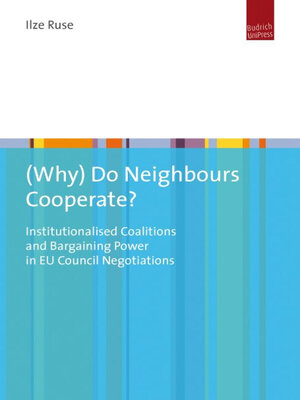(Why) Do Neighbours Cooperate?
ebook ∣ Institutionalised Coalitions and Bargaining Power in EU Council Negotiations
By Ilze Ruse

Sign up to save your library
With an OverDrive account, you can save your favorite libraries for at-a-glance information about availability. Find out more about OverDrive accounts.
Find this title in Libby, the library reading app by OverDrive.



Search for a digital library with this title
Title found at these libraries:
| Library Name | Distance |
|---|---|
| Loading... |
Negotiations in the European Union Council of Ministers are not only taking place within formal decision-making structures. Member states strive to find allies and coordinate their positions prior to formal negotiation meetings. They either create ad hoc coalitions to pool voting power or cooperate within more durable, institutionalised coalitions that traditionally form due to geographical proximity or among like-minded member states as task-specific coalitions on particular issues. Institutionalised coalitions bestow their members with a bargaining advantage even if they cannot generate enough voting weight to reach voting thresholds.







